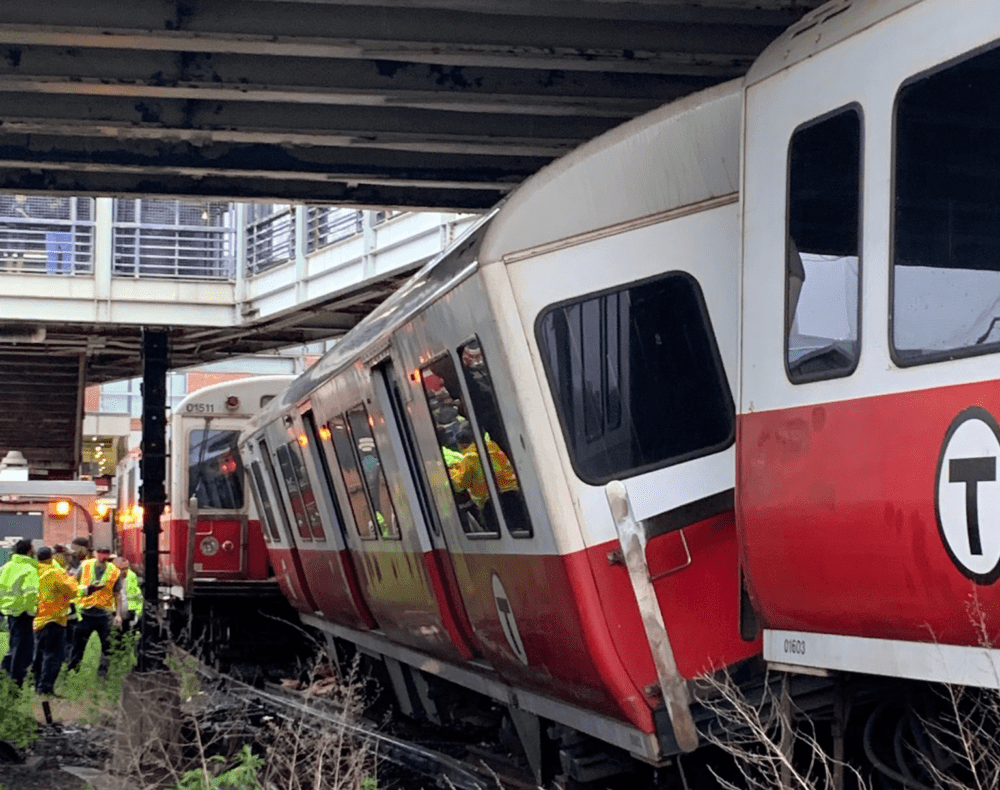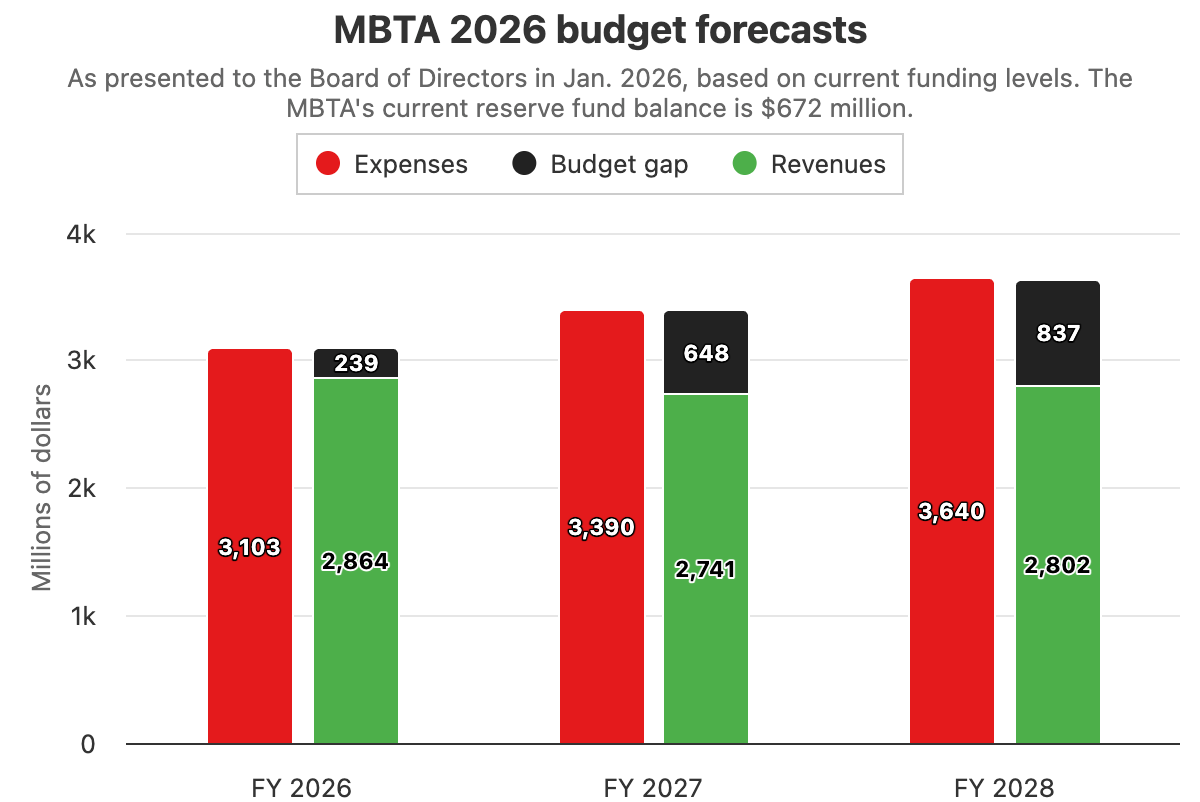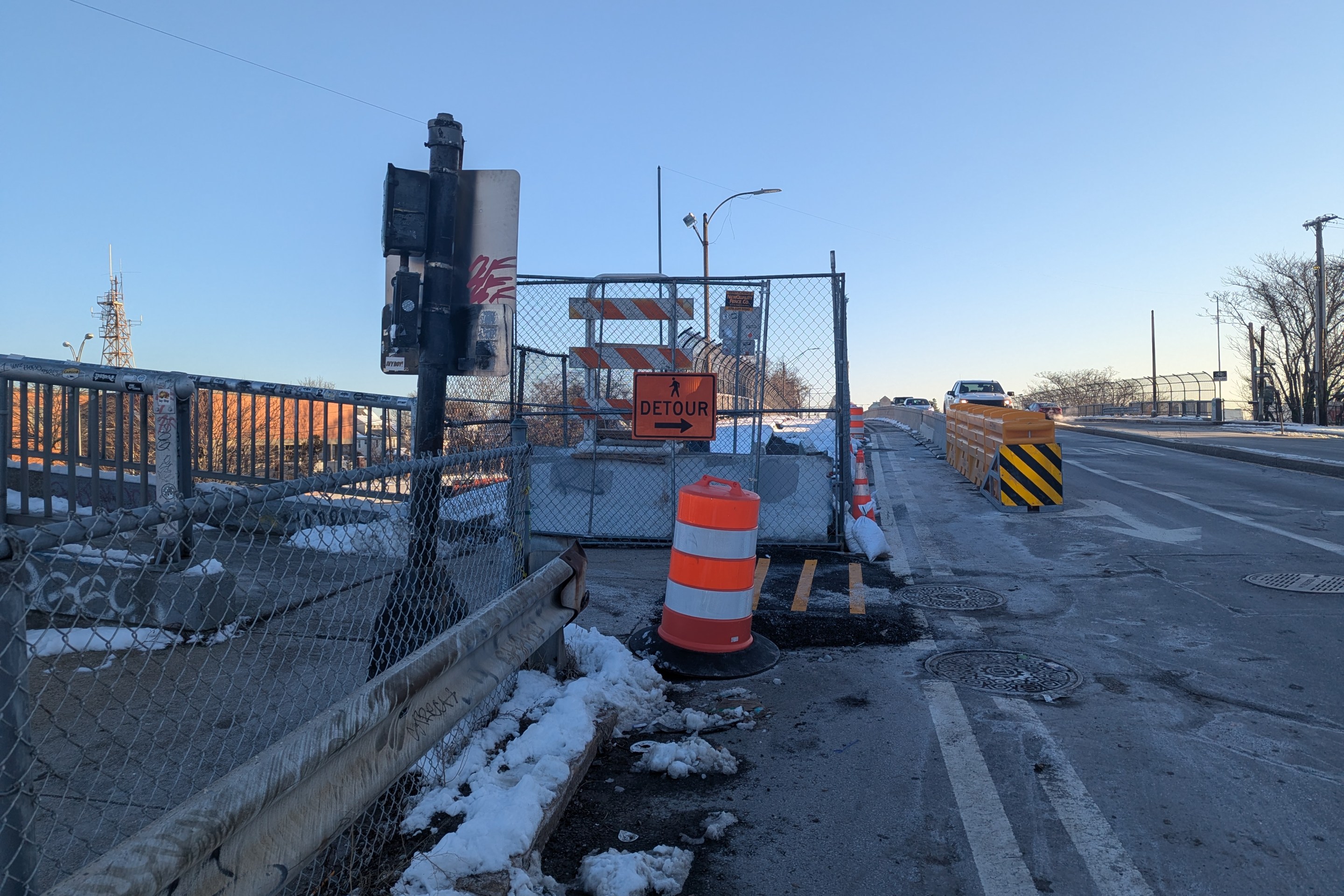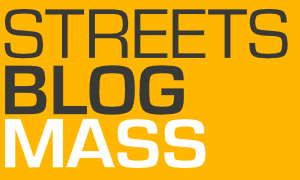On Wednesday, the Federal Transit Administration (FTA) published the final report from its detailed “safety management inspection” and gave the T a list of 53 tasks to repair what the federal government called a "pattern of safety incidents" that include train crashes, derailments, and runaway trains.
“The associate administrator of the FTA who presented the report today framed this as a potential new beginning for the MBTA, and I certainly view it that way as well," said MBTA General Manager Steve Poftak in a presentation of the report to the MBTA board of directors on Wednesday morning.
"Everything that’s put forward in this report is something that the MBTA will benefit from, and that the MBTA should be doing.”
The final report adds to an earlier set of "special directives" that the FTA had already issued earlier this summer. Those directives focused on especially urgent safety risks – like inadequate staffing levels at the T’s Operations Control Center where subway trains are dispatched, and widespread problems with lapsed safety certifications among subway operators – which, in the federal inspectors' opinion, required immediate action before the FTA published its final report.
Poftak told board members on Wednesday that, as of last Friday, the FTA had approved and accepted the T's "corrective action plans" on those earlier directives, and that the agency is in the process of implementing those plans now (one reason the T decided to shut down the entire Orange Line for 30 days).
But the final report adds more directives, with 53 specific actions that the T will need to address.
Broadly speaking, the new directives focus on the T's ongoing struggles to hire and retain qualified workers who can operate and maintain the subway system, and, for workers who are employed at the T, on the agency's ability to follow its own safety guidelines, prioritize safety initiatives, or communicate safety issues between front-line workers and upper management.
The FTA also criticized the Baker administration for trying to build its way out of its problems by increasing spending on large capital construction projects while cutting funding and staffing for day-to-day operations.
"Over the last four years, the MBTA's capital budget has grown four-fold, yet MBTA is still recovering from the impact of funding cuts from 2015 to 2019 to the MBTA's operations and maintenance budget which resulted in a reduction in hundreds of millions of dollars and hundreds of positions," wrote the FTA's inspectors.
The report also notes that, in spite of the surge in capital spending, the T's "aging assets and infrastructure continue to deteriorate and fail... The combination of overworked staff and aging assets has resulting in the organization being overwhelmed, chronic fatigue for key positions in the agency, lack of resources for training and supervision, and leadership priorities that emphasize meeting capital project demands above passenger operations, preventative maintenance, and even safety."
Poftak told MBTA board members that he's created a new "Quality, Compliance, and Oversight Office" that will be led by Katie Choe, formerly the T's Chief of Capital Delivery, to follow through on the report's required actions.
Governor Baker also filed a $200 supplemental budget request for the MBTA to help address the FTA's to-do list. That would include $10 million for a new joint MBTA and MassDOT workforce training program.
However, while there was extensive discussion at today's MBTA board meeting about the T's staffing needs, there was little public conversation about the structural barriers to hiring, like the agency's unusually low entry-level wages (there was, however, a long executive session held behind closed doors so that the board could discuss collective bargaining negotiations with the T's labor unions).
“The MBTA needs additional staff to do what it wants to do; we can’t put this additional work in place and just expect to sweat our existing staff even further," Poftak told board members on Wednesday.
In a statement, Josh Ostroff of the Transportation for Massachusetts coalition wrote that “MBTA riders deserve a system that is safe and reliable on a day-to-day basis, but that also looks to the future with long-term improvements... Our leaders – the Governor, the MBTA and its board, the Department of Public Utilities, and the state legislature – need to make an immediate course correction. We urge our partners in state government to maintain the focus on capital investment, which is urgent and overdue, but not at the expense of rider safety and public confidence."
Read the FTA's full report here, or find detailed summaries of its four special directives and safety inspection findings here.






